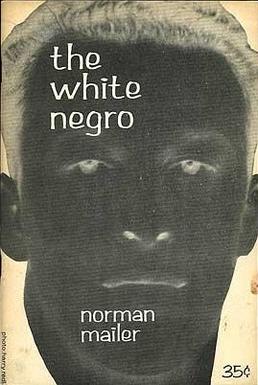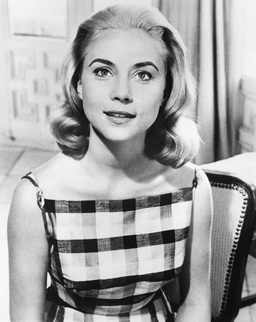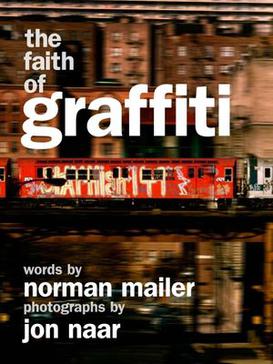
Nachem Malech Mailer, known by his pen name Norman Kingsley Mailer, was an American novelist, journalist, playwright, and filmmaker. In a career spanning more than six decades, Mailer had 11 best-selling books, at least one in each of the seven decades after World War II.

The Royal Aeronautical Society, also known as the RAeS, is a British multi-disciplinary professional institution dedicated to the global aerospace community. Founded in 1866, it is the oldest aeronautical society in the world. Members, Fellows, and Companions of the society can use the post-nominal letters MRAeS, FRAeS, or CRAeS, respectively.

The Executioner's Song (1979) is a Pulitzer Prize-winning true crime novel by Norman Mailer that depicts the events related to the execution of Gary Gilmore for murder by the state of Utah. The title of the book may be a play on "The Lord High Executioner's Song" from Gilbert and Sullivan's The Mikado. "The Executioner's Song" is also the title of a poem by Mailer, published in Fuck You magazine in September 1964 and reprinted in Cannibals and Christians (1966), and the title of one of the chapters of his 1975 non-fiction book The Fight.

The White Negro: Superficial Reflections on the Hipster is a 9,000-word essay by Norman Mailer that connects the "psychic havoc" wrought by the Holocaust and atomic bomb to the aftermath of slavery in America in the figuration of the Hipster, or the "white negro". The essay is a call to abandon Eisenhower liberalism and a numbing culture of conformity and psychoanalysis in favor of the rebelliousness, personal violence and emancipating sexuality that Mailer associates with marginalized black culture. The White Negro was first published in the 1957 special issue of Dissent, before being published separately by City Lights. Mailer's essay was controversial upon its release and received a mixed reception, winning praise, for example, from Eldridge Cleaver and criticism from James Baldwin, Ralph Ellison, and Allen Ginsberg. Baldwin, in particular, heavily criticized the work, asserting that it perpetuated the notorious "myth of the sexuality of Negros" and stating that it was beneath Mailer's talents. The work remains his most famous and most reprinted essay and it established Mailer's reputation as a "philosopher of hip".
American Libraries is the flagship magazine of the American Library Association (ALA).

J. Michael Lennon is an American academic and writer who is the Emeritus Professor of English at Wilkes University and the late Norman Mailer’s archivist and authorized biographer. He published Mailer's official biography Norman Mailer: A Double Life in 2013. He edited Mailer's selected letters in 2014 and the Library of America's two-volume set Norman Mailer: The Sixties in 2018.

Tough Guys Don't Dance is a 1987 crime mystery comedy-drama film written and directed by Norman Mailer based on his novel of the same name. It is a murder mystery/film noir piece. It was screened out of competition at the 1987 Cannes Film Festival.

Church Society is a conservative, evangelical Anglican organisation and registered charity formed in 1950 by the merger of the Anglican Church Association and National Church League. In May 2018, Church Society merged with two other evangelical Anglican organisations, Reform and the Fellowship of Word and Spirit to provide a united voice for conservative evangelicals within the Church of England.
"The Time of Her Time" is a 1959 short story written by Norman Mailer, first appearing in his miscellany Advertisements for Myself. The story depicts macho Irish Catholic bullfighting instructor Sergius O'Shaugnessy and his sexual conquest of a young, middle-class Jewish college girl, Denise Gondelman. The short story was adapted to film in 2000 by Francis Delia. On multiple occasions, Mailer has touted "The Time of Her Time" as "the godfather of Lolita."

"Superman Comes to the Supermarket" is an essay by the American novelist and journalist Norman Mailer about the 1960 Democratic convention. Originally published in Esquire as "Superman Comes to the Supermart," this essay was Mailer's initial foray into political journalism. It characterizes John F. Kennedy as a potential "existential hero" who could revitalize the US after eight years under Dwight D. Eisenhower to rediscover its lost imagination. "Superman" further develops and emphasizes Mailer's concern with the importance of the individual's will and creativity that must challenge conformity and obedience in American life to fully realize a genuine life. With "Superman", Mailer extends New Journalism by taking an active role in the narrative, which would characterize much of his subsequent journalistic style and lead to his Pulitzer Prize for The Armies of the Night in 1968.

The Short Fiction of Norman Mailer is a 1967 anthology of short stories by Norman Mailer. It is grouped into eight thematic sections and contains nineteen stories, many appearing in one of Mailer's miscellanies; thirteen were published in periodicals or other anthologies before appearing in this collection. The collection was reprinted in hardcover in 1980 and some of the stories were reprinted in other volumes.
Justin Bozung is an American biographer, author, and editor of several cinema books and articles.

"The Man Who Studied Yoga", a novella by Norman Mailer written in 1952, was first published in the 1956 collection New Short Novels 2 then later in Mailer's 1959 miscellany Advertisements for Myself (AFM). It is a tale of a "writer manqué", or a writer who fails to write, reflecting some of Mailer's own anxiety in the 1950s as he tries to reinvent himself.
Provincetown Arts is an annual magazine published in midsummer that focuses on artists, performers and writers who inhabit or visit Lower Cape Cod and the cultural life of the nation's oldest continuous artists' colony in Provincetown. Drawing upon a century-long tradition of art, theater and writing, Provincetown Arts publishes essays, fiction, interviews, journals, poetry, profiles, reporting, reviews and visual features. Provincetown Arts is published by Provincetown Arts Press, Inc., a 501(c)(3) non-profit organization.

Beverly Bentley was an American actress. Her career began during the Golden Age of Television in the 1950s and continued on stage and in film into the first decade of the 21st century.

The Mailer Review is a peer-reviewed academic journal established in 2007 by the Norman Mailer Society and edited at the University of South Florida's Department of English. The purpose of the journal is to maintain the legacy of eponym Norman Mailer. The Review publishes original scholarship, book reviews, fiction, poetry, tributes, bibliographies, and interviews. Contributors have included Norman Mailer, Don DeLillo, William Kennedy, J. Michael Lennon, Christopher Hitchens, and Lawrence Schiller.

This Norman Mailer bibliography lists major books by and about Mailer, an American novelist, new journalist, essayist, public intellectual, filmmaker, and biographer. Over a fifty-nine-year period, Mailer won two Pulitzer Prizes and had eleven books spend a total of 160 weeks on the New York Times bestseller list. Mailer's output included fiction, non-fiction, poems and essays. Biographer J. Michael Lennon called Mailer the chronicler of the American Century, and a talent whose career has "been at once so brilliant, varied, controversial, improvisational, public, productive, lengthy and misunderstood".

The Faith of Graffiti is a 1974 essay by American novelist and journalist Norman Mailer about New York City's graffiti artists. Mailer's essay appeared in a shorter form in Esquire and as a book with 81 photographs by Jon Naar and design by Mervyn Kurlansky. Through interviews, exploration, and analyses, the essay explores the political and artistic implications of graffiti. The essay was controversial at the time of publication because of its attempt to validate graffiti as an art form by linking it with great artists of the past. Some critics also said Mailer was using the essay as a platform to express his political grievances. Faith grew out of Mailer's existential philosophy of the hip, in which a Hipster is guided by his instincts regardless of consequences or perception, and upholds graffiti as a subversive and healthy check on the status quo. Like several of his other non-fiction narratives, Mailer continued his use of new journalism techniques, adopting a persona, the A-I or "Aesthetic Investigator", to provide both an objective distance from the topic and to engender the text with the creative and critical eye of the novelist.
Raj Chandarlapaty is an American educator and author. Chandarlapaty is a product of the American philological tradition and has researched the contributions of Jack Kerouac and William S. Burroughs. His archival research, including previously unconsidered letters, "places them and their work in a context much larger and diverse than heretofore considered."
"In the Red Light: A History of the Republican Convention in 1964" is an essay written by Norman Mailer for Esquire about the Republican National Convention in 1964. Like Mailer's other journalism in the 1960s, "Red Light" uses the subjective techniques of new journalism and assumes a third-person persona to participate in, report on, and comment on the events in California in the summer of 1964. The essay is divided into three sections: the events leading up to the convention, including Goldwater's rise, the events leading up to Goldwater's nomination, and Mailer's view of his acceptance.













